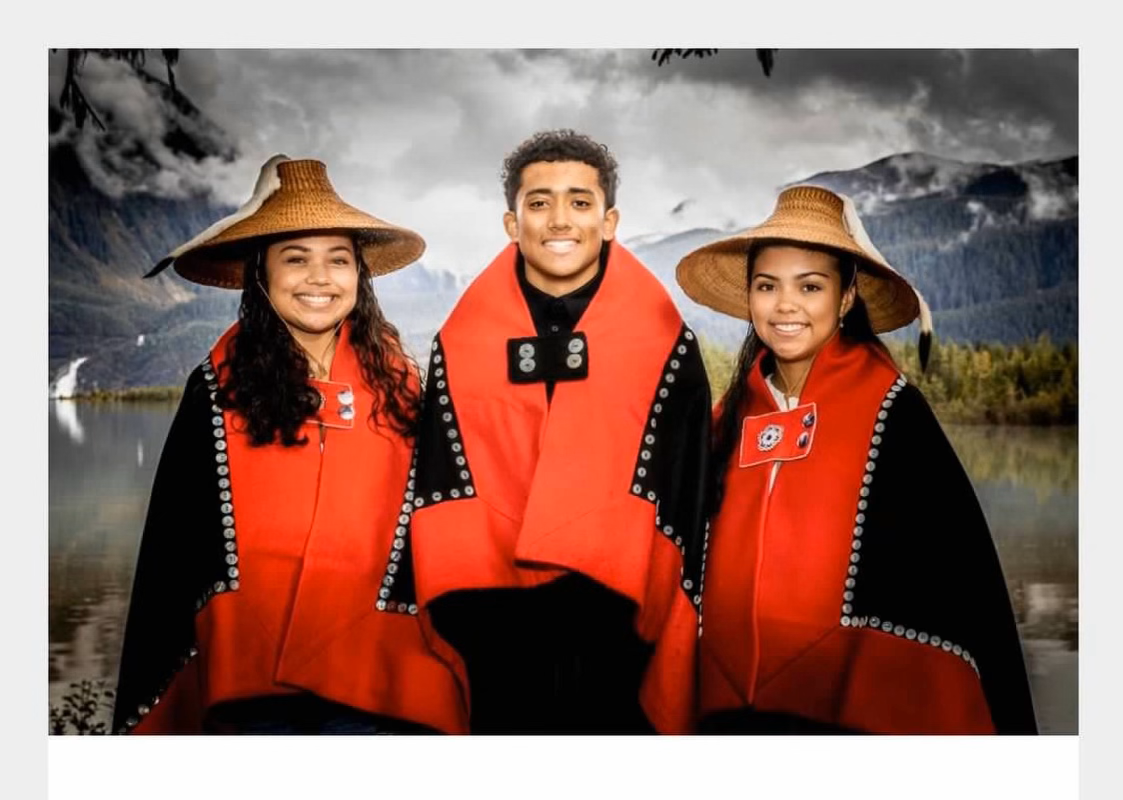
- Details
- By Native News Online Staff
Jade Araujo, a tribal citizen of Wampanoag Tribe of Gay Head - Aquinnah in Massachusetts, who also traces her lineage to the Tlingit and Koyukon Athabascan tribes in Alaska, joins a select group as the recipient of the American Indian College Fund Law School Scholarship.
A senior at Stanford University majoring in political science, Araujo will graduate in June and then enter Harvard Law School in the fall. She is the daughter of Todd Araujo (Aquinnah Wampanoag) and Jaeleen Kookesh (Tlingit and Koyukon Athabascan). Araujo is the third individual to be honored with this esteemed scholarship aimed at supporting American Indian and Alaska Native law students in their pursuit of legal education at Harvard.
This scholarship, made possible by a generous $1 million contribution from an anonymous benefactor, covers tuition and all associated expenses for the entire duration of the three-year law program at Harvard. Its mission is clear: to remove financial barriers hindering the attainment of a Juris Doctor degree from Harvard Law School, thereby bolstering the ranks of Native legal professionals dedicated to safeguarding the rights of Indigenous peoples and their nations.
Araujo's recognition as the third recipient underscores her exceptional merit and commitment to this cause.
She affectionately attributes her aspiration to attend Harvard Law School to her paternal grandmother, Eleanor Hebert (Aquinnah Wampanoag), whose influence ignited her passion for legal studies. Araujo is drawn to Harvard not only for its academic rigor and abundant resources but also for its historical ties to the Aquinnah Wampanoag tribal lands on Martha’s Vineyard, a connection further deepened by the legacy of Caleb Cheeshahteaumuck, the first Native American graduate of Harvard University, who hailed from the same tribe. Additionally, Jade's Cape Verdean ancestry resonates with the vibrant Cape Verdean community in Boston, adding another layer of personal significance to her educational journey.
Coming from a family deeply rooted in the legal field, Araujo's upbringing was steeped in the principles of justice and advocacy. Both her parents pursued legal education, with her father becoming the first Aquinnah Wampanoag attorney. Her late maternal grandfather, Albert Kookesh, was a trailblazer in Alaska Native rights advocacy, leaving an indelible mark on Araujo's sense of purpose. Raised in Juneau, Alaska, on Tlingit land, she was inspired by the transformative potential of law in preserving cultural heritage and ensuring tribal sovereignty, surrounded by influential figures like her mother and grandfather.
During her internships with U.S. Senator Elizabeth Warren and at the White House, Araujo honed her skills in legislative research and policy analysis, gaining invaluable insights into the intricacies of government and the legislative process. Her experiences underscored the critical need for informed leadership and effective communication in shaping policies that impact communities.
With a keen interest in constitutional law,Araujo recognizes the pivotal role of legal professionals in advocating for Native rights, particularly in navigating complex issues such as tribal sovereignty and jurisdiction. She emphasizes the importance of representation at all levels of the legal system, from law clerks to Supreme Court justices, in ensuring equitable outcomes for Indigenous communities.
Beyond her academic pursuits, Araujo finds solace and joy in her family, including her twin sister Maya and younger brother Antone, as well as in cultural activities like traditional Tlingit dance. Engaged in various student organizations and advocacy groups, she remains committed to advancing the causes of Indigenous rights and women's empowerment.
In reflecting on her journey, Araujo expresses profound gratitude for the opportunity afforded by the scholarship, humbled by the responsibility it entails. Her dedication to serving her community and advocating for justice serves as a beacon of hope for future generations of Native leaders in the legal profession.
“I am so honored and humbled to have been chosen to receive this scholarship,” Araujo said.
More Stories Like This
Native Students Can Win $5,000 Scholarship, International Distribution in Pendleton Design ContestAmerican Indian College Fund Raises Alarm Over Plan to Shift Native Programs Away From the Dept. of Education
MacKenzie Scott Foundation Gives $5 Million Contribution to Little Priest Tribal College
Tribal Leaders Push Back on Dismantling of U.S. Department of Education
American Indian College Fund Names 12 Student Ambassadors for 2025–26
Help us defend tribal sovereignty.
At Native News Online, our mission is rooted in telling the stories that strengthen sovereignty and uplift Indigenous voices — not just at year’s end, but every single day.
Because of your generosity last year, we were able to keep our reporters on the ground in tribal communities, at national gatherings and in the halls of Congress — covering the issues that matter most to Indian Country: sovereignty, culture, education, health and economic opportunity.
That support sustained us through a tough year in 2025. Now, as we look to the year ahead, we need your help right now to ensure warrior journalism remains strong — reporting that defends tribal sovereignty, amplifies Native truth, and holds power accountable.
 The stakes couldn't be higher. Your support keeps Native voices heard, Native stories told and Native sovereignty defended.
The stakes couldn't be higher. Your support keeps Native voices heard, Native stories told and Native sovereignty defended.
Stand with Warrior Journalism today.
Levi Rickert (Potawatomi), Editor & Publisher


